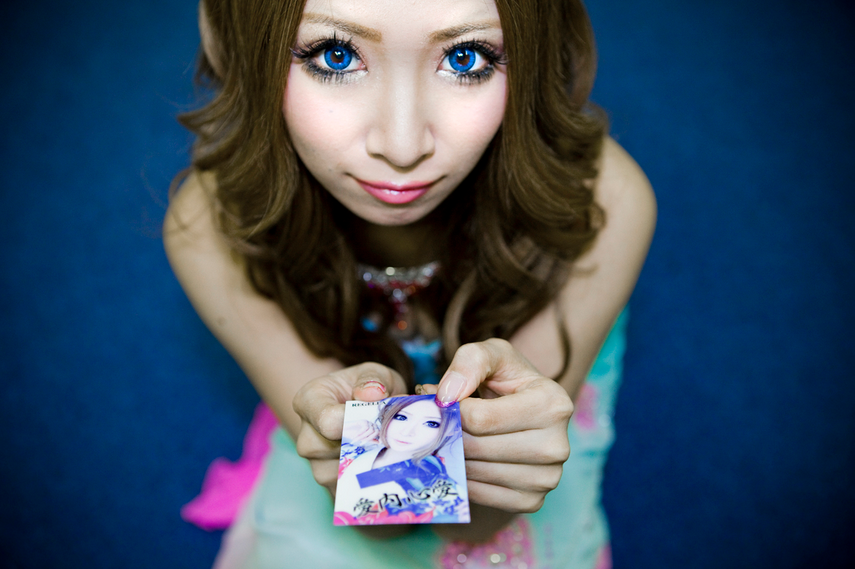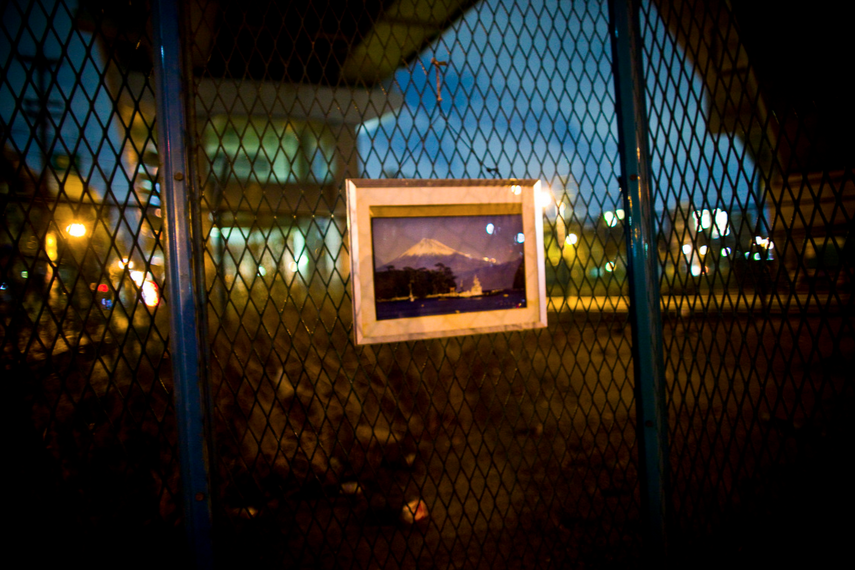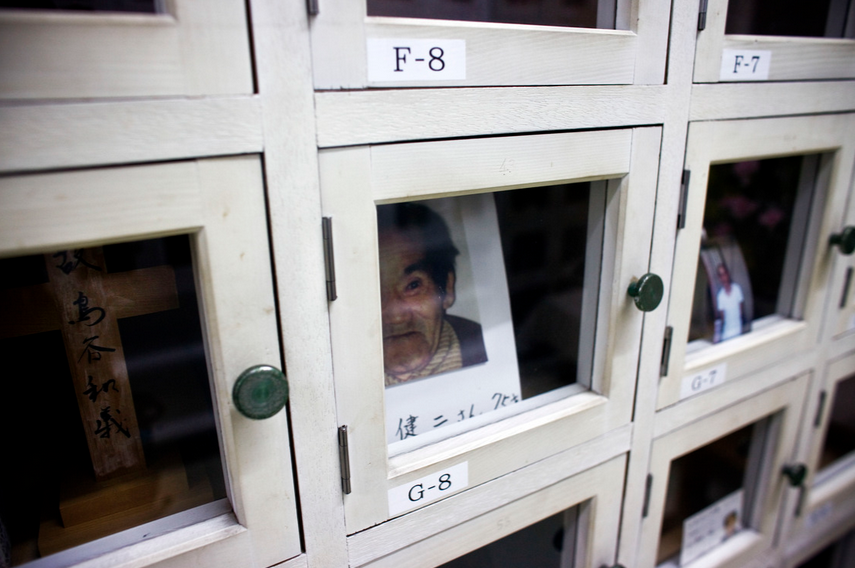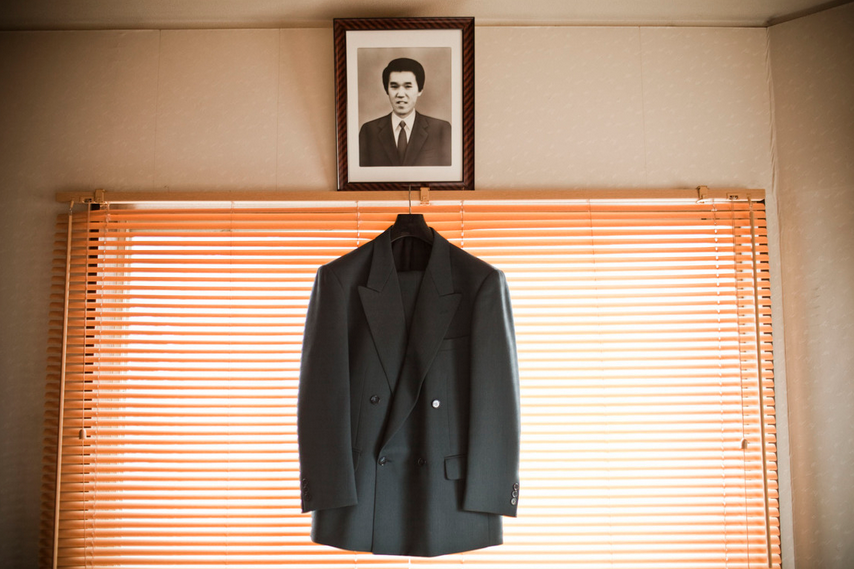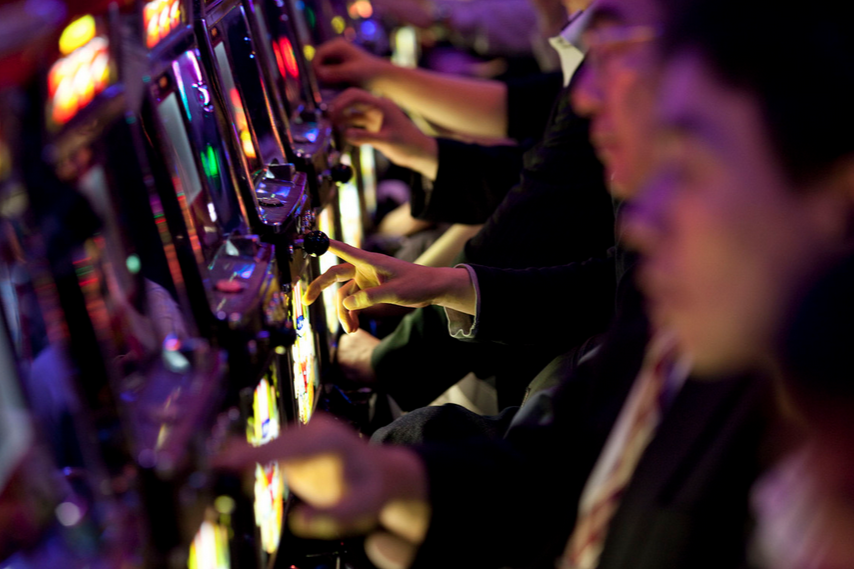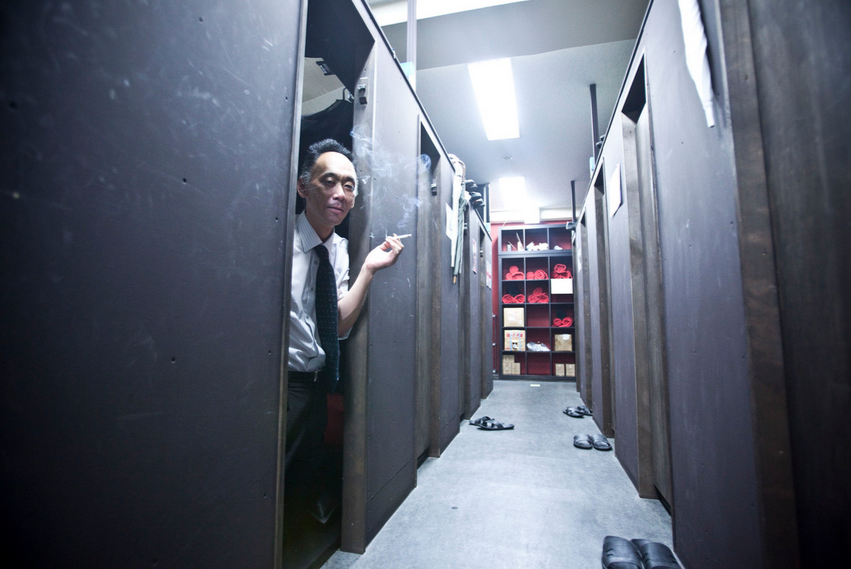Story by Coburn Dukehart, for NPR's The Picture Show
In 2008, photographer Shiho Fukada read a story in The New York Times about a town in Japan that was filled with destitute old men. Having grown up in a prosperous Japan, she says she couldn't stop thinking about them.
She traveled to the Kamagasaki district of Osaka to document the collapse of the labor market, including the old and sick day laborers who had been abandoned by an economy they had given their lives to.
That essay sparked a four-part photo series documenting people who have made hard choices in the wake of Japan's declining economy. Over the next few years, Fukada sought out people who were struggling, although they still tried to maintain a brave face.
"[Japanese] people suffer in private, in their homes, so I thought it was a really important story to tell," Fukada says.
"The lnternet cafe workers — they put on tie, go to work — you couldn't tell," she says. "The amount of effort people put in is really heartbreaking to me."
The four parts of Fukada's project highlight the aging population of Kamagasaki; the rise of white-collar suicide; the increasing popularity of hostess jobs; and the rise of 24-hour Internet cafes — where people actually live.
"Japanese [people] are so private, so it was really hard for me to approach them and to get access to them," she says. "And on top of that, these are people in extreme conditions who are not necessarily proud of their situations."
Fukada, who splits her time between China and New York, temporarily moved back in with her parents in Japan to work on the project. Her father worked the same job his whole life and is now comfortably retired. But she says those opportunities are fading in Japan, making her work deeply personal.
"I can relate," she says. "I'm a freelance photojournalist. I'm totally disposable. I could be any one of these people. People think, 'I'm not going to end up like that.' But now, given the economy, anyone could end up in this situation."
Fukada's project was funded in part by grants from the Pulitzer Center and the Alicia Patterson Foundation. You can see more of her work on her website.
